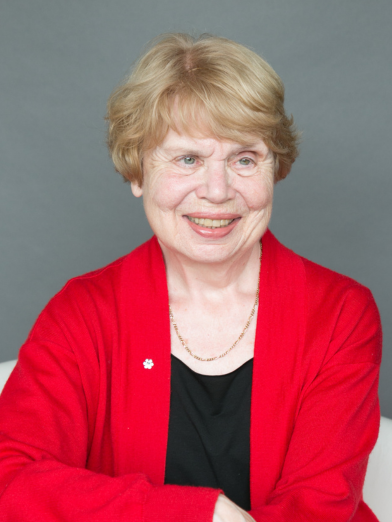Life-long lessons from the Alberta Prairies
Kalina Broda - 16 September 2024

Even in the depths of Alberta’s cold winters, a helping hand can offer a warm feeling, whether shovelling a neighbour’s driveway or boosting a stranger’s car.
Alumna Dr. Eva-Marie Kröller, CM calls this willingness to jump in and help “prairie-style neighbourliness” and it is a lesson she has cherished for over 50 years.
After completing her British and German literature studies in Germany, with a brief interruption as a teaching assistant in England, Kröller emigrated to Canada in 1973 and obtained her PhD in Comparative Literature at the University of Alberta in 1978.
Shortly afterwards, she left the prairies and continued to shape Canadian literature as a decorated writer, editor and educator — notably appointed to the Order of Canada in 2022 for her significant contributions — yet the lessons she learned at the U of A stay with her to this day.
“I associate the U of A, and the prairies in general, with high standards of mutual support and neighbourliness,” says Kröller. “The lessons I learned have stayed with me for the remainder of my life.”
There is one story in particular that she has shared with her own students at the University of British Columbia for over four decades.
“I don’t know how many times I have told my students the story of how — when the meaning of winter in Alberta was still sinking in — I had stopped my car on the highway during a blizzard to clear the windshield because the wipers were not working fast enough,” she says. “Within seconds a giant truck roared to a stop behind me, a young man jumped out, asked if I had a problem and ordered me to start the engine. It started, thank goodness, but I also got a lecture on what to wear on the road in icy temperatures (jeans and a t-shirt were not recommended) and what emergency equipment to carry at all times in such weather.”
Kröller says the truck followed her closely for several miles to ensure she continued on safely.
“It taught me a model lesson that has motivated my own readiness to jump in where needed, and not make a fuss about it,” says Kröller. “That was only one of the more spectacular among similar stories.”
Kröller also fondly recalls how the collective eagerness to help — sharing knowledge and understanding from different corners of the world — translated into the classroom and across campus.
“Both the Department of Comparative Literature and the U of A as a whole were truly cosmopolitan: students and staff from all over the globe broadening each other’s intellectual and political horizons,” says Kröller. “I credit my doctoral supervisor Professor Blodgett with introducing me to Canadian literature and culture in both official languages, just as I credit international fellow students – especially scientists from Africa and the Philippines — with taking my political education in hand.”
Kröller says these fellow students were the first to offer her a glimpse of non-European literature, which eventually influenced the direction of her studies.
“Some of these books made their way into my doctoral thesis, otherwise preoccupied with Canadian literature in English and French”, says Kröller. “They even determined my future research interest in postcolonial writing.”
Kröller specializes in literary history, travel writing, life writing and cultural semiotics. From 1995 to 2003, she was editor-in-chief of the journal Canadian Literature and the first Canadian to receive the Distinguished Editor Award of the Council of Editors of Learned Journals (2004) for this work.
She is also a professor emerita from the Department of English Language and Literatures at the University of British Columbia, where since 1978, her research and teaching have been shared with countless students, academics and international audiences. Her impressive accomplishments include a Killam Research Prize (1995) and a Killam Teaching Prize (1999).
The advice she offers to all students is consistent: develop as many talents as possible.
“For your own benefit and for that of your possible future students and co-workers, be as linguistically, intellectually and professionally versatile as possible,” says Kröller. “Academic jobs are rare, particularly rare in the Humanities, but they are not the only possible rewarding employment upon completion of your degree.”